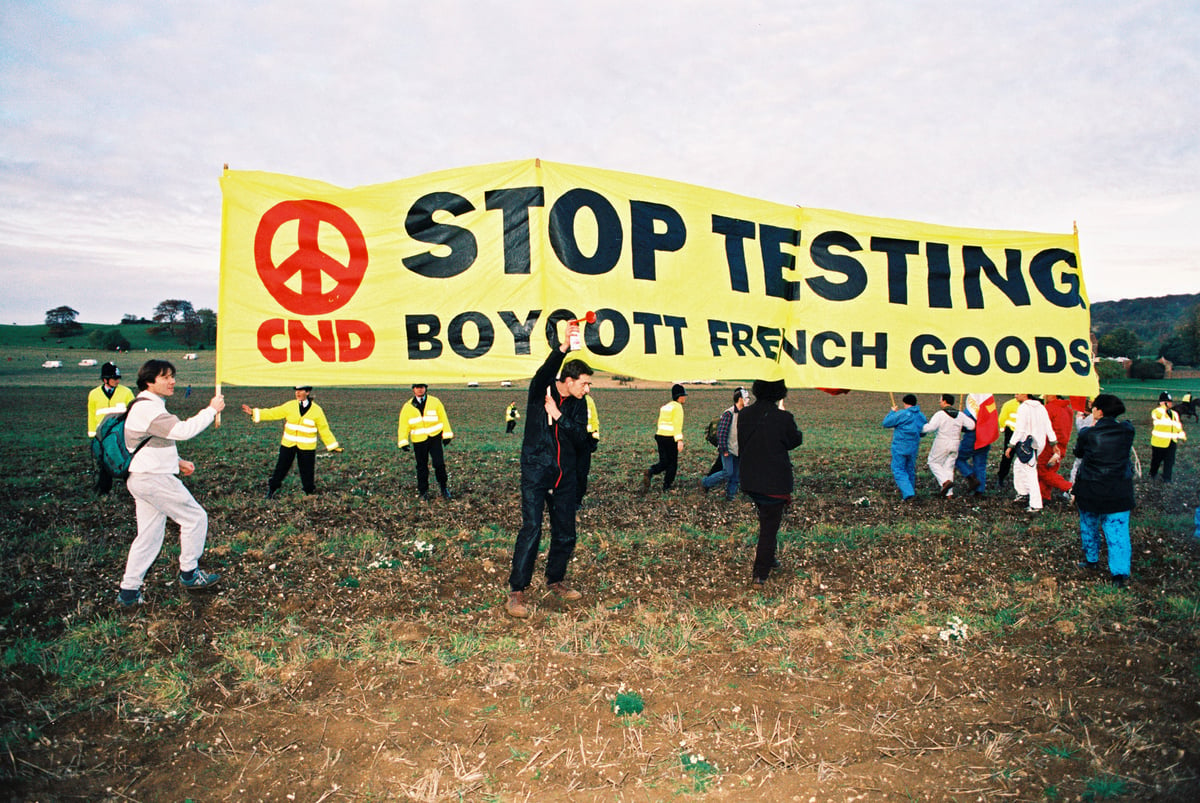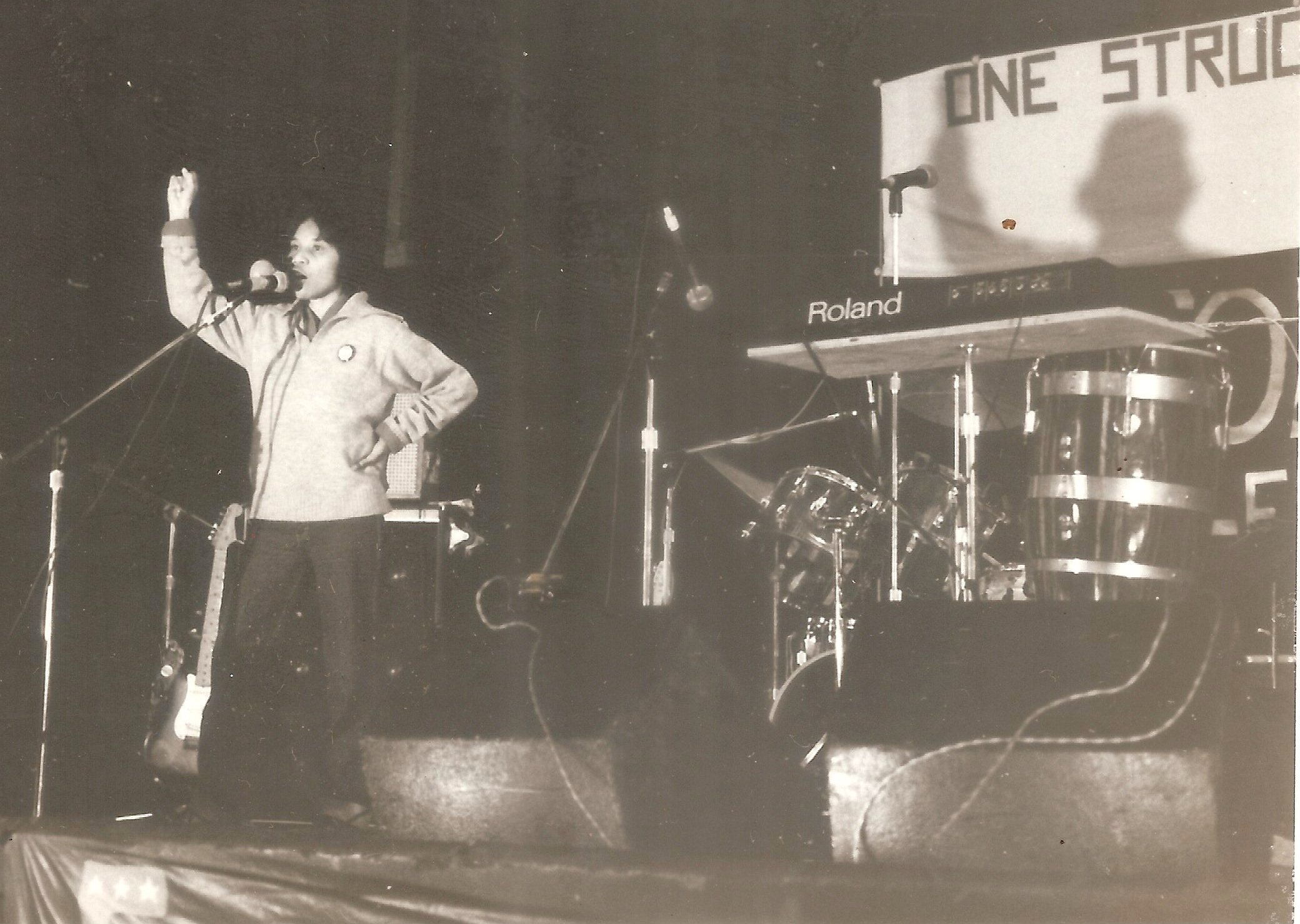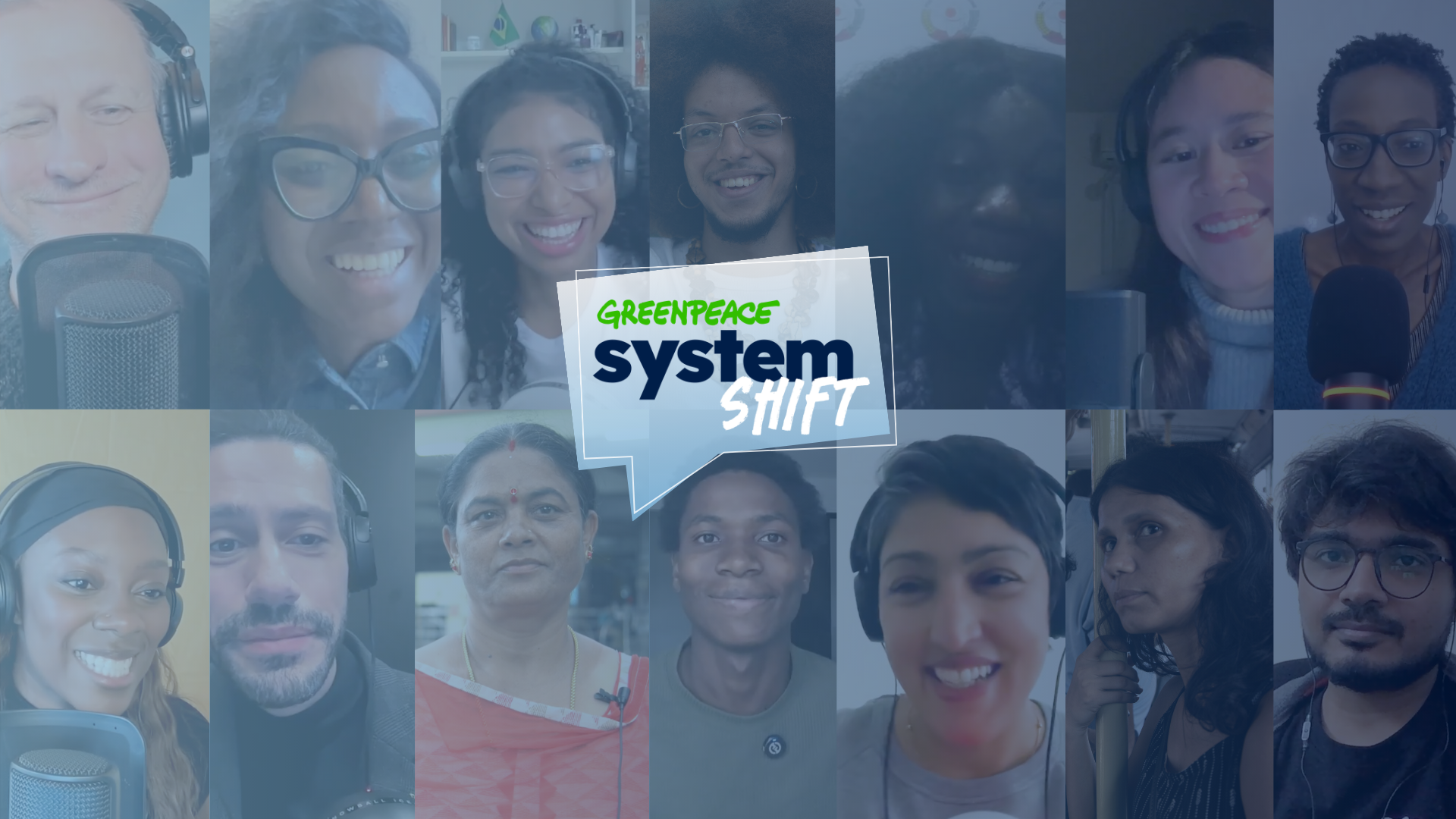71 years ago, on Bikini Atoll in the Marshall Islands, a nuclear bomb with the codename “Castle Bravo”, exploded with an energy of 15 megatons. The mushroom cloud reached 40 kilometres into the atmosphere, resulting in thousands of square kilometres of the Pacific Ocean being contaminated by radioactivity. Its explosive yield was 1000 times more powerful than the Hiroshima bomb; and within four hours of the explosion, radioactive fallout made up of crushed coral, water, and radioactive particles, rained down over inhabited atolls, including Rongelap Atoll, which was 150 kilometres away. A fine white ash landed on the heads and bare arms of people standing in the open, dissolving into water supplies and drifting into houses. Witnesses of the Bravo nuclear fireball described seeing a second sun rising in the west, just before the terrifying shock waves hit them.
For the people of the Marshall Islands, that day on 1 March 1954 will forever be known as Remembrance Day – the anniversary of Castle Bravo, the largest ever nuclear weapons ‘test’ conducted by the United States military.
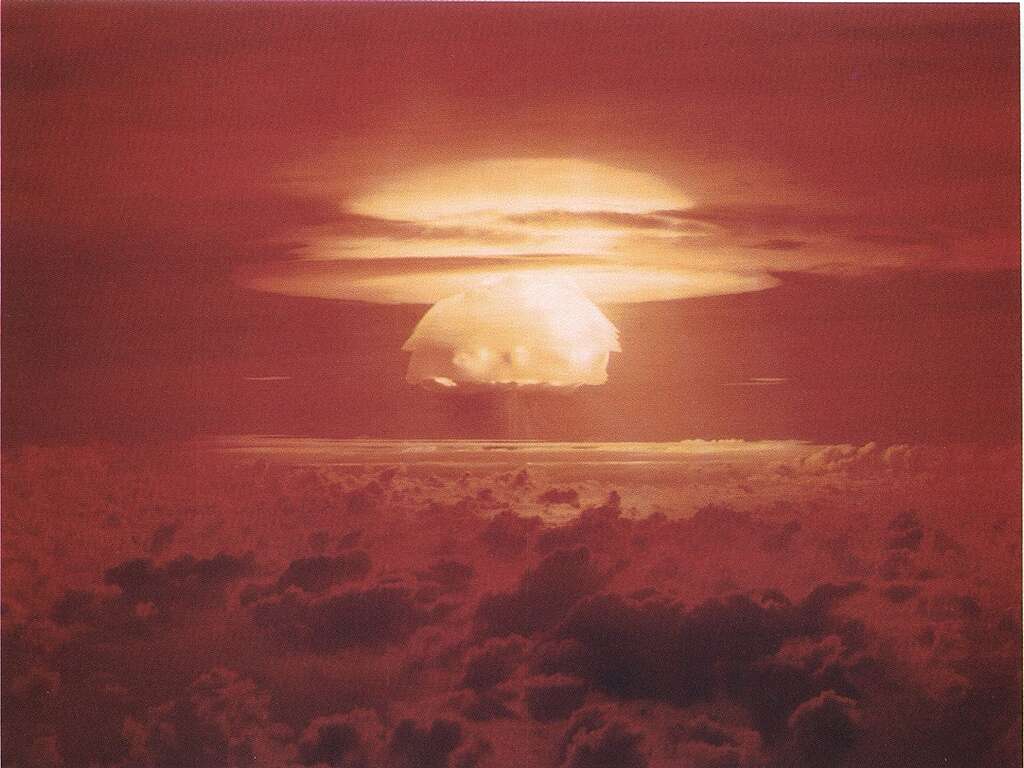
In the 1950s, after the explosion, U.S. government scientists warned that the people of Marshall Islands were subjected to “high sub-lethal dose of gamma radiation, extensive beta burns of the skin, and significant internal absorption of fission products”. They were subjected to decades of medical experiments run by secretive U.S. laboratories, later to be discovered as Project 4.1.
71 years after the detonation, there remains no cancer clinic in the whole country. Many of the citizens still live in permanent exile, with some of the islands vaporised by nuclear weapons, while others remain too radioactive for safe return. The consequences of Castle Bravo have echoed through generations of the people in the Marshall Islands who have been denied the right to justice, proper medical care, and full reparation for loss and damage.
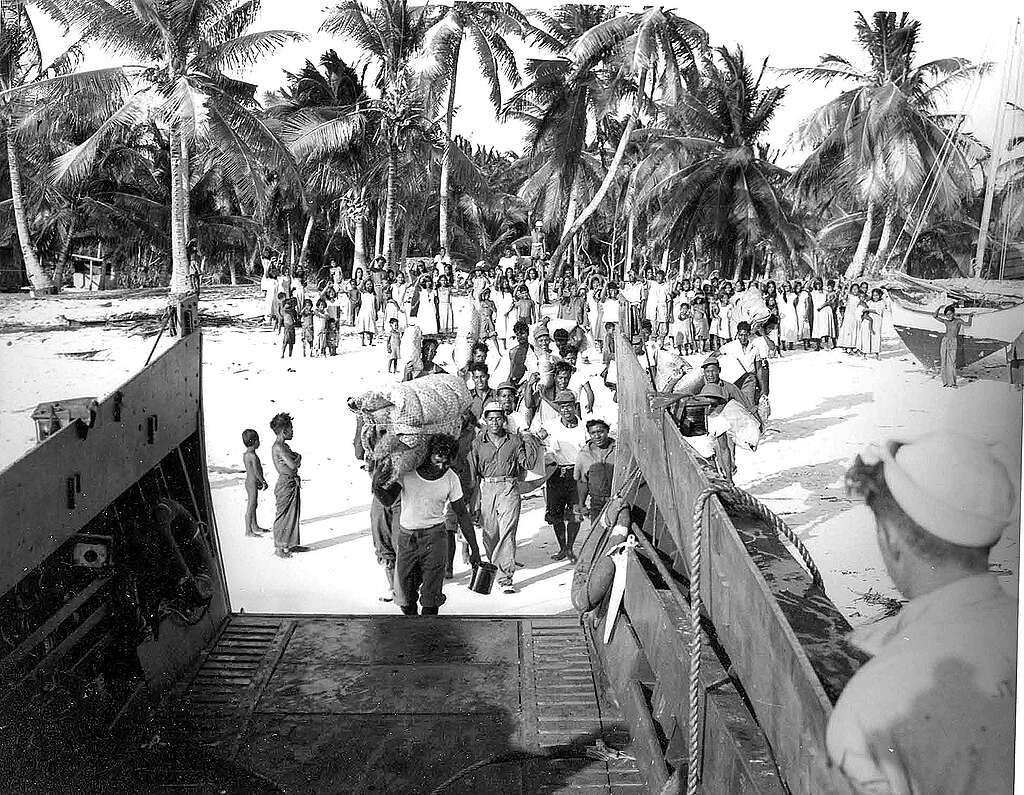
“After centuries of colonial rule, the people of the Marshall Islands and the wider Pacific, were made 20th century victims of a nuclear arms race which for them was never a ‘Cold War’,” said Shiva Gounden, Head of Pacific at Greenpeace Australia Pacific. “But all through this, their decades of resilience, resistance and refusal to be silenced in their quest for nuclear justice, has been an inspiration across generations. The proud people of the Marshall Islands have retained their profound and deep connection to their Pacific home, despite all efforts to destroy that connection through displacement and contamination. That same determination is now evident in their response to the devastating impacts of climate change. The refusal of the US to meet in full their obligations, is matched today by the neo-colonial forces which deny the right of Pacific islanders to climate justice, funds for climate adaptation and mitigation, and financing for loss and damage. Today, we pay our deepest respects to the people of the Marshall Islands and their demands for nuclear and climate justice.”
The Marshall Islands government continues its strenuous efforts to secure compensation and justice from the U.S. government. It received US$150 million in nuclear compensation under its 1986 Compact of Free Association (COFA) with the U.S. The COFA established a tribunal to adjudicate compensation claims. The tribunal sought over US$3 billion in today’s dollars that the U.S. has never paid. In addition the US government has left the Marshallese with a “ticking time bomb” – the Runit Dome. After years of nuclear testing, a concrete dome measuring 114 meters in diameter and filled with radioactive waste has been left to the Marshallese. Climate change and rising sea levels have caused cracks to appear; and since the Marshall Islands independence in the late 70s, the US has absolved all responsibility of the maintenance of the Dome and have left it to the Marshall Islands government.
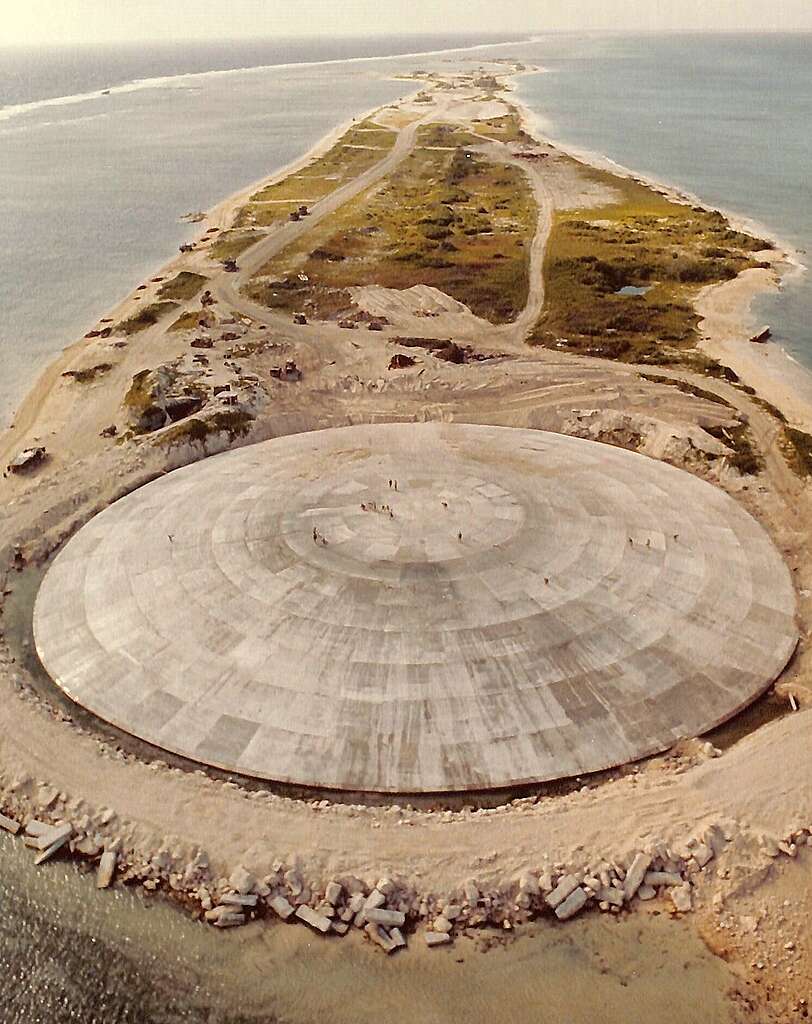
Like the resilient people of the Marshall Islands who refuse to give up, Greenpeace stands in genuine and deep solidarity by elevating the voices and stories of the communities impacted by the testing of nuclear weapons and the dangers it imposes. As their people are today pursuing those responsible for their suffering through the human rights institutions of the United Nations, Greenpeace will also continue to highlight this injustice. Jimwe im Maron
This article was originally published in 2024, to mark the 70 year anniversary of the Castle Bravo test. In 1957, just three years after the detonation, the people of Rongelap were told by the US government their island was deemed safe and asked to return. Decades later, after experiencing too many health complications and finding the island unsafe to live in, the people of Rongelap asked for assistance from Greenpeace; and in 1985, the Rainbow Warrior helped evacuate them from their home and move them to Mejatto Island.
In 2025, the Rainbow Warrior will be visiting again – this time to support and amplify the Marshall Islands’ courageous ongoing call for justice and fight for systemic change at a global level.
Shiva Gounden is the Head of Pacific at Greenpeace Australia Pacific
Shaun Burnie is International Climate & Nuclear Campaigner for Greenpeace International.
Notes:
- Wilmer Joel, Remembering the Bravo test, 9 March 2023
- April L Brown, No Promised Land: The Shared Legacy of the Castle Bravo Nuclear Test
- Dr. Robert A. Conard, then the director of the Atomic Energy Commission’s Brookhaven National Laboratory (BNL) medical team – Robert Conard to L. H. Farr, 2 June 1959 (Future Marshallese Surveys)
- Camila Pohle, Opinion: US policy toward the Marshall Islands must change, 22 February 2024
- UN Human Rights Council, Resolution adopted by the Human Rights Council on 7 October 2022, 51/35. Technical assistance and capacity-building to address the human rights implications of the nuclear legacy in the Marshall Islands

